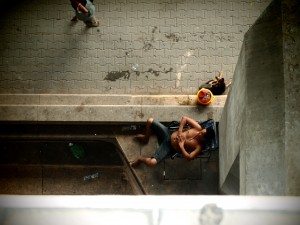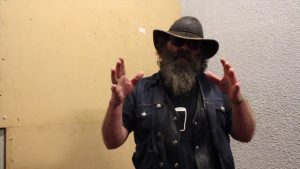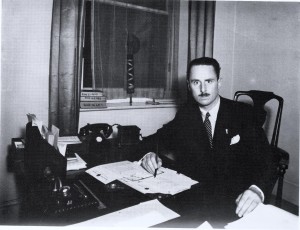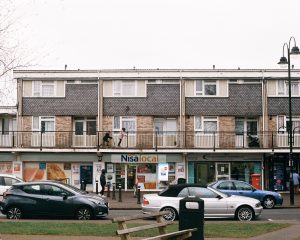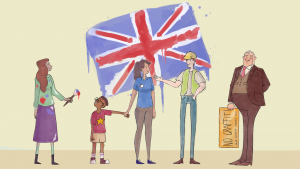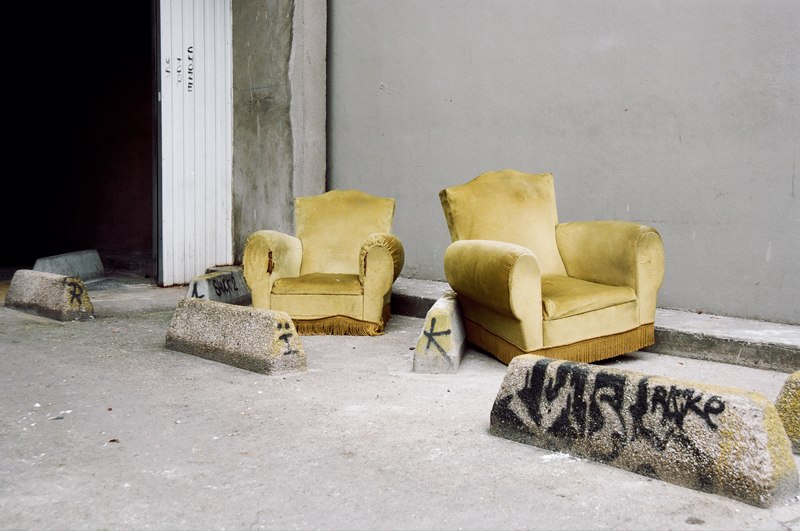
“We are invisible people”: Getting to know Oxford’s rough sleepers
by Raphael Hogarth | January 4, 2015
“If people haven’t had that experience of being dragged up with nothing, you couldn’t explain to them what it’s like. They would not understand.” John doesn’t talk about being brought up – the word is always ‘dragged’. Homeless since the age of 14, he has spent the last nine of his 35 years sleeping rough on the streets of Oxford. He shares those streets with dozens of other rough sleepers, and hundreds more who are legally considered ‘homeless’. John, Scout, Bill and Graham are four of the Oxford street’s most familiar faces, pitched on Broad Street and St. Giles. By talking to them, I hoped to get a little closer to understanding what John laments most people never can – “what it’s like to have nothing”.
John is the youngest of the four, but not the newest to homeless life. “I was dragged up with an alcoholic father and physically abused by my father every day; I watched my mum abused by my father every day through the booze. I got kicked out of home when I was 14 years of age, and from that day I’ve been having to fend for myself.” His best friend, Scout, is a few years older. Scout, like ten per cent of rough sleepers, is an ex-serviceman who struggled with the return to civilian life. After leaving the army, he had a spell in jail. He and his wife had a son six months after his release but, at the age of three, their son was killed by a drunk driver. “The judge gave the person five months. I couldn’t cope with it. I was having nightmares, and what I saw in the army didn’t help. And I started drinking heavily. And I just fucked everything up. That was 12 years ago. My son would have been 15 this year.”
Each of the four evades certain questions about their history – there are clearly episodes in their past too painful to revisit. But Bill, who sells the Big Issue by Blackwell’s, glosses over his arrival on the street with a sort of jolly shrug that I’m not expecting. “We’d come from Southport, like with drugs and that lot – we had some money from a compensation payout and we knew that everybody would be coming for us.” He doesn’t explain what this means, but I don’t ask. Bill’s addiction to hard drugs – which he beat, proudly, five years ago – landed him in trouble. “We ended up in Oxford. Put it this way – the 35 grand lasted us six weeks!”
Graham, who sells the Issue outside Taylor’s on St. Giles, has a similar sort of matter-of-fact approach – each sentence sounds like an item being ticked off a list. “From the age of 15 I started taking amphetamines, which I was doing up until about my early forties. I was married and divorced during that time. I split up with my wife back in 1993 and, I don’t know, had a breakdown or something. Certainly everything seemed to go wrong from then. My life just crashed down and, one day, I just found myself messing around with heroin. Before I knew where I was, I was homeless on the streets.” Throughout the conversation, Graham tries to convey the sense he was losing a grip on his own life. “‘Oh, it won’t happen to me’ was my attitude when it started. But I didn’t realise what was going on. It became a problem before I had a chance to realise it was.” Nonetheless, he refuses to abdicate any responsibility to his addiction: “Nobody else made those choices for me – I made them all myself.”
In one sense or another, these all seem to be stories of abuse – of people or of substances. But such generalisations are a major cause of frustration. “I find it really, really degrading how all of us homeless people are tarred with the same brush,” says John. Scout nods enthusiastically, and joins John in chorus for the last few words. “Because of the ones who are out here trying to get money for drugs and alcohol, drunk off their faces on cans of Special Brew, it messes it up for people like myself and Scout. Because then we get labelled the same as those people.”
In fact, all four of these men are now sober. But on the street, sobriety can lead to social marginalisation. “I’ve been sober for two years, four months, three days, and I’m proud of that,” says Scout. “But since I got sober, I’ve been lonely. I can’t mix with the rest of them on the monument.” John agrees: “They’re all mates, all those lot that sit at the monument drinking. They’re all friends but they all beat the shit out of each other. So I tend to avoid it, because I don’t want to be like my Dad. I can’t be like my Dad.” Bill tells a similar story – he got sent to a talking group because he wanted some more human contact, but he just found “people talking about taking drugs all day long. I don’t want that,” he says. “I want a life.”
Being sober can even make it harder to access food and shelter. The Gatehouse is a daily drop-in centre, offering food and other amenities to Oxford’s homeless. But these men don’t go, because they’re worried about the risk of relapse. “The majority of [those who go] are on drugs and drink,” says John. “I avoid those situations”. Even the Night Shelter (now known as Oxford Homeless Pathways), which provides beds and support services for £3 a night, is considered too dangerous to return to. “They stand there drinking all day long,” says Scout. “And they try and get you out of your room to drink with them, to make you fail, to make you go backwards. They don’t like to see people succeed.” Bill’s experience is similar: “I stay away from the Night Shelter nowadays – just so many bad memories. It is a pretty bleak place; it really is bleak. That’s the only reason I do stay away. Drugs, alcohol, violence, all sorts…”
But all four speak movingly about how sobriety can also help to build friendships on the street. “I just wonder some days,” says Scout; “Is it worth being sober? Is it worth just having that drink again? But lucky John stops me. That’s why I’m glad to have him as a friend.” John confirms this emphatically – “Me and Scout, we’re just like glue,” he says. “We’re side by side all the time.” Graham’s account is similar. Halfway through his recovery from addiction, he came dangerously close to relapse. “My sister had just died of cancer and I was just really depressed. A bottle of Jack Daniel’s was on the shelf; I actually picked it up and took the bottle, went [sniffs] and put the bottle back on the shelf. That’s as close as I got, but it’s only because Bill came through the door.”
There is government and charity support available for combating addiction, and homeless charities in Oxford are spoken of fondly. Bill lavishes praise on a keyworker at the night shelter who helped him get on the path to housing, and both Issue sellers are generally positive about the magazine – “being able to come out and sell the Issue and earn a few extra quid helps everybody,” says Graham. The Council also comes off well – both Bill and Graham have worked their way up the Council housing list to get off the street. But there’s an overwhelming sense of frustration at how the law looks upon the homeless. Amazingly, the legal status of begging in England and Wales is still given by the Vagrancy Act of 1824, which makes it a criminal offence “to beg or gather alms”. That is a legal position taken by just a handful of countries, and Scout is particularly frustrated by it. “I’ve had fines for begging; been arrested for begging. It turns poor girls from beggars into prostitutes, and I think that’s done more damage than giving them money.” He also feels it’s a misallocation of resources. “The police are wasting so much time and the government’s wasting so much money trying to stop beggars, when they should be out trying to catch criminals.” John and Scout are both angry about the way they have been treated by police community support officers, but they are nervous to complain. “If you make a complaint about an officer, your life’s not worth it in this town,” says Scout.
It’s how these men are treated by passers-by, however, which most frustrates them. “You’ll often hear me say to people: ‘thanks for acknowledging me’,” says Bill. “That’s purely because there’s that many people that don’t.” “Some people look at you down their noses from a long way up,” Graham interrupts. But Bill and Graham, the Issue sellers, reckon Oxonians are at least comparatively polite. “You don’t get people stopping to talk to you in other towns. They’ll throw money on the floor and you’ll say ‘thank you’, but that’s it.”
The others paint a bleaker picture. “Most people won’t even talk to you and get to know you as a human being,” says Scout. “Before every person was on the street, they were someone.” He feels that rough sleepers get stripped of that human identity. “When people get you food, they don’t ask you what you would like as a human being. They automatically make your mind up for you. People never ask us or try to talk to us.” John’s verdict is more damning still. “We get blanked. We are invisible people and people just walk past us like we’re bits of shit on the bottom of their shoes.” I ask if it’s any better in Oxford than elsewhere. “No. It doesn’t matter. You could be in the most beautiful city or country or whatever. Bottom line is, we’re homeless, so it doesn’t make a difference.” The idea of indifference comes up again and again. “Because I’m so used to having nothing all my life… you could put a thousand pound in front of me now and it would just be like ‘thanks’. I’d be grateful, but it’s nothing to me.” Even death becomes mundane. “I don’t like saying this really,” confesses Graham apologetically at one point. “But I just shrug when somebody dies now. ‘Right, another one.’”
It comes as no surprise that what upsets these rough sleepers most is the inequity of their situation – the sense of imbalance. But what strikes me from these conversations is that the imbalance they find most egregious isn’t about wealth. It’s about narrative. “It’s all one-sided. Beggars are ‘bad’. We’re all ‘liars’. We’re all ‘drug thieves’. We’ll ‘rip you off’. We’ll ‘take all your money’. No. If you get to talk to a person and find out who the person is instead of giving them a bit of change…” Scout never completes that conditional – he couldn’t really have explained it better.
